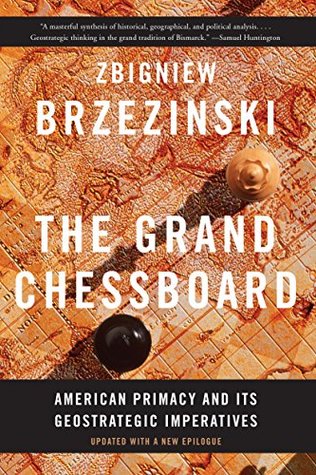More on this book
Community
Kindle Notes & Highlights
Read between
October 30 - November 8, 2018
In addition, one must consider as part of the American system the global web of specialized organizations, especially the “international” financial institutions. The International Monetary Fund (IMF) and the World Bank can be said to represent “global” interests, and their constituency may be construed as the world. In reality, however, they are heavily American dominated and their origins are traceable to American initiative, particularly the Bretton Woods Conference of 1944.
Who rules East Europe commands the Heartland; Who rules the Heartland commands the World-Island; Who rules the World-Island commands the world.
To put it in a terminology that hearkens back to the more brutal age of ancient empires, the three grand imperatives of imperial geostrategy are to prevent collusion and maintain security dependence among the vassals, to keep tributaries pliant and protected, and to keep the barbarians from coming together.
In contrast, Great Britain is not a geostrategic player. It has fewer major options, it entertains no ambitious vision of Europe’s future, and its relative decline has also reduced its capacity to play the traditional role of the European balancer. Its ambivalence regarding European unification and its attachment to a waning special relationship with America have made Great Britain increasingly irrelevant insofar as the major choices confronting Europe’s future are concerned. London has largely dealt itself out of the European game.
Britain’s reluctance to participate in the Economic and Monetary Union, targeted for January 1999, reflects the country’s unwillingness to identify British destiny with that of Europe.
Ukraine, a new and important space on the Eurasian chessboard, is a geopolitical pivot because its very existence as an independent country helps to transform Russia.
Without Ukraine, Russia ceases to be a Eurasian empire.
A destabilized Turkey would be likely to unleash more violence in the southern Balkans,
NATO provides not only the main mechanism for the exercise of U.S. influence regarding European matters but the basis for the politically critical American military presence in Western Europe.
The brutal fact is that Western Europe, and increasingly also Central Europe, remains largely an American protectorate, with its allied states reminiscent of ancient vassals and tributaries. This is not a healthy condition, either for America or for the European nations.


